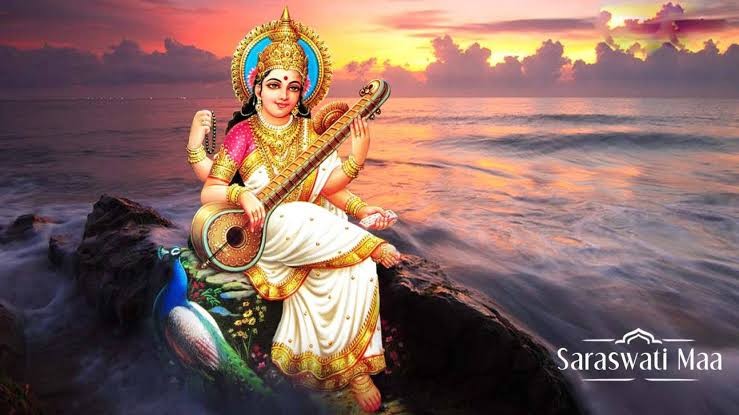
Saraswati Pooja: Celebrating Knowledge and Wisdom during Navaratri
Saraswati Pooja is a significant Hindu festival celebrated during the auspicious time of Navaratri. This festival, dedicated to Goddess Saraswati, holds immense importance in Indian culture, especially among students, artists, and those who seek knowledge and wisdom. In this article, we'll explore the significance of Saraswati Pooja and why it is performed during Navaratri, as well as why it is a practice that everyone can benefit from.
The Significance of Saraswati Pooja:
Saraswati is the Hindu goddess of knowledge, art, music, and wisdom. She is depicted as a serene, white-clad deity, often holding a veena (a musical instrument) and a book. The worship of Saraswati is an embodiment of reverence for the pursuit of knowledge and the arts. Here are some key aspects of its significance:
Knowledge and Wisdom: Saraswati Pooja is a celebration of intellectual and spiritual growth. It symbolizes the importance of acquiring knowledge, wisdom, and the ability to distinguish between right and wrong.
Arts and Creativity: It is a festival that particularly resonates with artists, musicians, and scholars. Saraswati is the patron of the arts, and her blessings are sought to excel in creative pursuits.
Learning: For students, this day is of paramount importance. Many schools and educational institutions organize special ceremonies to honor Saraswati. Students offer their books and instruments for her blessings, believing that this will enhance their learning capabilities.
Language and Communication: Saraswati is also associated with eloquence and the power of speech. She is revered for her ability to bestow the gift of effective communication.
Why Saraswati Pooja is Part of Navaratri:
Navaratri, which means "nine nights," is a Hindu festival celebrated over a period of nine nights and ten days. Each day is dedicated to a different goddess. Saraswati Pooja is typically celebrated on the seventh or eighth day of Navaratri. Here's why it's included:
Spiritual Evolution: Navaratri is a time of intense spiritual energy. Each day is associated with a different form of the goddess Durga, who symbolizes the divine feminine energy. Saraswati, representing knowledge and wisdom, complements this spiritual journey by encouraging self-realization.
The Divine Trinity: In Hindu mythology, Saraswati is considered one of the three supreme goddesses, along with Lakshmi (goddess of wealth) and Parvati (goddess of power). Celebrating Saraswati during Navaratri aligns with this trinity and underscores her essential role in the cosmos.
Why Everyone Can Benefit:
Saraswati Pooja isn't limited to any specific group; it is a celebration that everyone can partake in and benefit from. Here's why:
Lifelong Learning: The pursuit of knowledge and wisdom is a universal quest. Whether you're a student, a professional, or simply someone seeking personal growth, Saraswati Pooja encourages a lifelong commitment to learning.
Cultural Harmony: While traditionally a Hindu festival, Saraswati Pooja has transcended religious boundaries and is celebrated by people from various backgrounds. It promotes cultural harmony and respect for diverse forms of art, music, and knowledge.
Promoting the Arts: Recognizing the arts as an integral part of human expression, Saraswati Pooja encourages artistic endeavors, fostering creativity and innovation.
In conclusion, Saraswati Pooja is a festival that celebrates the divine aspects of knowledge, wisdom, and the arts. It's performed during Navaratri, a period of spiritual significance, to emphasize the importance of these virtues. The festival is not confined to a specific group; it's a celebration that invites everyone to embrace the pursuit of knowledge, artistic expression, and the continuous journey of self-improvement. Saraswati Pooja is a reminder that, in the light of wisdom, the human spirit can flourish and create a brighter future.